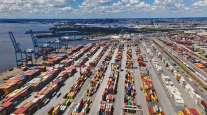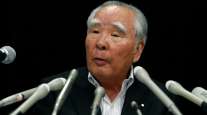Leaving NAFTA, Imposing Tariffs Would Drive Up Vehicle Prices, Study Shows

While a proposed border adjustment tax on goods including cars and trucks appears to have been pulled off the political stove by House Republicans, the North American Free Trade Agreement is still on a burner.
A new study commissioned by the Motor & Equipment Manufacturers Association and conducted by Boston Consulting Group suggests that the U.S. leaving NAFTA would drive up prices of vehicles sold in the U.S. through suggested tariffs on autos and auto parts coming into the U.S. from Canada and Mexico.
A renegotiation of NAFTA, however, could benefit the auto industry, said Ann Wilson, senior vice president for government affairs for the association.
“The administration is focused on renegotiating NAFTA this year,” she said during a conference in Troy, Mich., on July 19. “We are very concerned about its impact on employment in the industry.”
Wilson said Congress is working on tax reform plans that propose reducing corporate taxes from 20% to 15%. Tariffs, such as those from the languishing border adjustment proposal, which would tax U.S. companies for moving jobs abroad and importing products, could help make up the difference in revenue.
Making changes to NAFTA like allowing easier passage for employees moving between plants in Mexico and Canada would be a benefit, Wilson said.
On the other hand, big changes to NAFTA rules would weaken the ability of U.S. motor vehicle manufacturers to compete in the global market, according to the consulting group’s study. For example, a 20% tariff on Mexican imports could add an average $650 per vehicle to the production cost. The automaker “most reliant on imports could see its per-vehicle costs rise by an average of $1,100,” the study concluded.
When the study commenced earlier this year, a border adjustment tax appeared more of a threat. This explains the emphasis in the report on the detrimental effects of such taxes beginning at 15%. The study said that a manufacturer’s suggested retail price of a $29,693 vehicle assembled and sold in the U.S. would increase by about $450 with a 15% border tax. A vehicle sourced extensively outside the U.S. could see an anticipated $1,500 increase on top of the $22,640 sticker price of a car. The border tax would affect nearly all automakers based on the fact that carmakers import or use some percentage of foreign parts.
Higher sticker prices due to tariffs could cause consumers to opt out of some important-but-optional safety equipment in order to save money when purchasing a car said Xavier Mosquet, Boston Consulting Group senior partner and lead author of the study.
Or, Mosquet said, the automakers would decrease content in order to compensate for increased sticker prices.
Mosquet added that advanced technology, from self-driving features to the latest safety equipment, provides supplier jobs in the U.S.
The study emphasized the reliance of the U.S. auto industry on a complex global supply chain and the importance of access to low-cost labor in order to compete.
Key findings:
• Under current market conditions, the economics of reshoring (moving suppliers and assembly to the U.S.) are not favorable for most motor vehicle products. In the long run, production in Mexico would remain more economical even in the event of a border adjustment tax.
• On average, the cost of production would rise across the industry due to a border tax or the introduction of tariffs (a range of $1,000 to $1,200).
Jenny King is a freelancer.
Distributed by Tribune Content Agency, LLC




